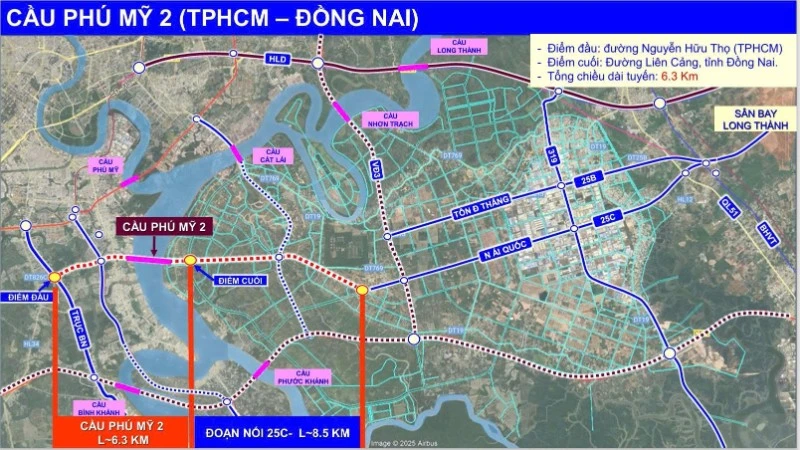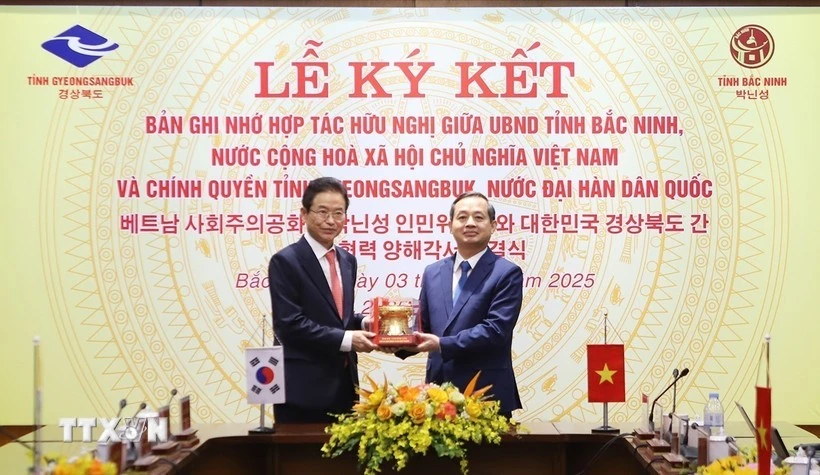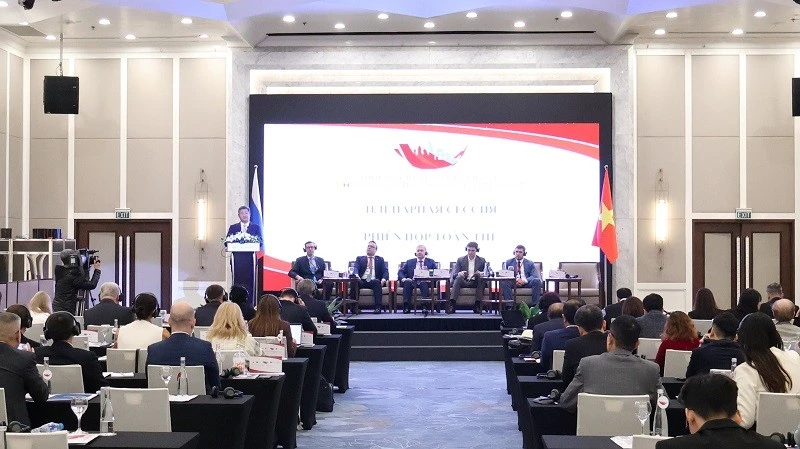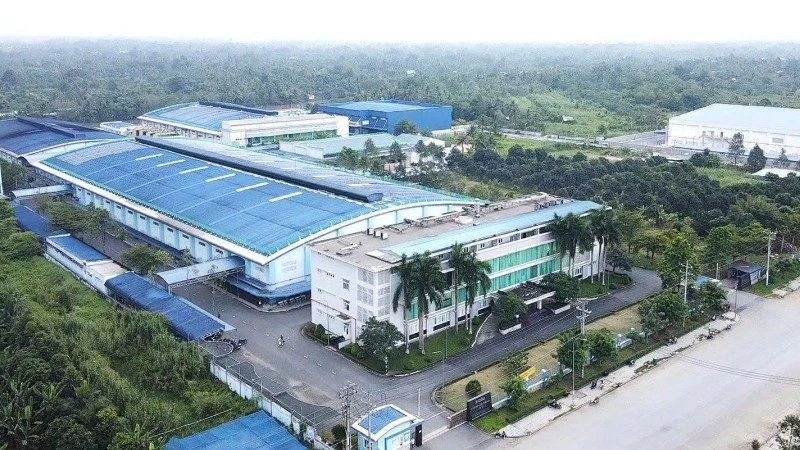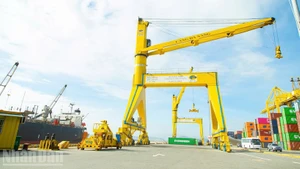On October 1, following the issuance of its certificate for public share offering by the State Securities Commission (SSC), VPBank Securities Joint Stock Company (VPBankS) announced its plan to offer 375 million shares to the public at 33,900 VND per share. With an estimated capital mobilisation of nearly 12.7 trillion VND, this is one of the largest initial public offerings (IPOs) in the history of Viet Nam’s securities market, laying the groundwork for the company to expand its margin lending capacity and business operations.
A strong comeback of IPO activities
According to Vu Huu Dien, General Director of VPBankS, after the IPO, the firm’s charter capital will reach 20 trillion VND, placing it among the top securities companies by scale in Viet Nam. The raised funds will be used for margin lending, investments in the debt capital market, securities investment, and information technology development, with an expected post-tax profit of 3–5%, equivalent to 250–350 billion VND annually.
Statistics show that in the first nine months of this year, only four enterprises were listed or transferred to the Ho Chi Minh City Stock Exchange (HoSE). However, entering the fourth quarter, the IPO and listing market has shown a marked revival. Recently, Techcom Securities (TBCS) was approved for listing under the code TCX with over 2.3 billion shares, equivalent to a par value of 23.1 trillion VND.
Beyond the financial sector, Gelex Infrastructure JSC is preparing to offer 100 million shares to raise about 3 trillion VND for infrastructure projects. Meanwhile, Hoa Phat Agricultural Development Company (a member of Hoa Phat Group) has filed for an IPO, planning to sell 30 million shares, equivalent to 11.7% of its charter capital, at a minimum price of 11,887 per share VND.
The surge in IPO activity is not coincidental — it is closely linked to the implementation of Decree No. 245/2025, effective from September 11, 2025, which introduces what experts call a “procedural revolution” in the field of stock listing and public offerings.
According to Hoang Van Thu, Vice Chairman of the State Securities Commission, in the past, IPO registration dossiers required multiple documents such as business registration certificates and securities registration certificates issued by the Viet Nam Securities Depository and Clearing Corporation (VSDC). Consequently, stock exchanges (SGDs) could only review listing applications after IPO completion and verification of financial conditions, causing delays of 6–12 months before a company could list its shares.
Under the new decree, this process has been streamlined into two stages: preliminary appraisal of financial conditions upon submission and official approval after IPO completion. Notably, the requirement to submit a securities registration certificate in the listing application has been abolished, allowing companies to complete procedures simultaneously at the VSDC and the stock exchange.
The new decree shortens the time for securities to be traded from 90 days to 30 days after listing approval, accelerating the process, protecting investor rights, and enhancing IPO attractiveness. At the same time, Decree 245/2025 tightens listing standards by raising requirements for capitalisation, retail shareholder ratios, and insider commitments, while strengthening supervision, preventing violations, and streamlining administrative procedures to create a transparent, internationally aligned environment.
These improvements not only remove long-standing technical bottlenecks but also provide a more favourable legal foundation for enterprises to raise capital and expand through the stock market.
According to Hoang Nam, Director of Research and Analysis at Vietcap Securities, the new legal framework under Decree 245/2025, combined with FTSE Russell’s recent decision to upgrade Viet Nam from a frontier market to a secondary emerging market, has created a dual boost propelling the IPO wave.
In addition, the Politburo’s Resolution No. 68 -NQ/TW, which affirms that the private sector is one of the most important drivers of the economy, has had a positive impact, increasing corporate demand for capital mobilisation. Against this backdrop, a vibrant securities market has become an ideal launchpad for enterprises to access large-scale funding to expand production and business.
Truly a quality product
With the new decree, regulators are pursuing a dual goal — “promoting growth while tightening market discipline” — to ensure that every IPO becomes not just a fundraising channel but a genuine high-quality product of the economy.
Although the listing process has been shortened, standards have not been loosened; instead, enterprises are required to meet higher thresholds for financial capacity, corporate governance, and information transparency. Accounting and auditing systems must comply with international standards, and financial statements must be independently audited. At the same time, enterprises must maintain a robust mechanism for timely and accurate information disclosure.
However, listing also poses numerous challenges, particularly in standardising governance models, human resource capacity, and compliance with international standards. For medium-sized enterprises or those newly spun off from parent groups, the process of restructuring, establishing risk control systems, and meeting disclosure requirements demands time, cost, and comprehensive professionalisation.
In a highly competitive market, maintaining stable performance post-IPO will be the real test of leadership capability and strategic vision. Therefore, to make the most of institutional improvements, experts emphasise that enterprises should view enhanced governance, information disclosure, and risk management as the core foundations for sustainable development, rather than merely as prerequisites for listing.
Proactively adopting International Financial Reporting Standards (IFRS), strengthening internal control systems, and training leadership teams on Environmental, Social, and Governance (ESG) standards, risk management, and investor relations will increase corporate attractiveness and strengthen market confidence.
Meanwhile, regulatory authorities should continue refining technical guidelines and promoting full digitalisation across IPO and listing procedures to shorten approval times, reduce risks and errors, and facilitate businesses. Establishing a unified database of listed enterprises across the entire market is also essential to enhance transparency and improve information connectivity among regulators, issuers, and investors.
Finally, a professional IPO support ecosystem should be developed — including advisory, auditing, valuation, and underwriting institutions operating in line with international standards. As the quality of intermediary services improves, the IPO market will become more transparent and efficient, attracting substantial domestic and foreign capital.
If these solutions are implemented synchronously, Viet Nam could enter a second IPO boom in the 2025–2030 period, with annual capital mobilisation estimated at tens of billions of USD, enabling enterprises to strengthen their financial capacity while moving the Vietnamese stock market closer to international standards.
Hoang Nam, Director of Research and Analysis at Vietcap Securities, stated: “From now until 2027, IPO and listing activities are expected to surge, with an estimated total value of around 50 billion USD, contributing to diversifying market products and creating major opportunities for advisory and financial intermediary institutions.”




